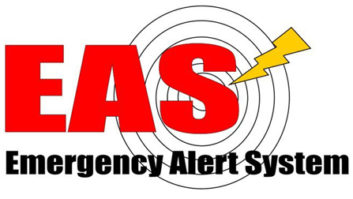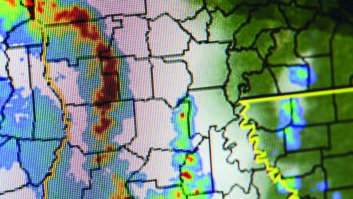
Maine Association of Broadcasters President/CEO Suzanne Goucher says emergency alert originators need more training in next-gen EAS, and she thinks Congress should consider creating a national working group on alerting. I think a national working group on alerting can only help emergency alerting get attention from all stakeholders.
During a hearing on alerting before the Emergency Preparedness, Response & Communications Subcommittee of the House Homeland Security Committee, Goucher said it’s great that FEMA plans to expand existing training for local emergency managers who originate alerts, because more is “desperately” needed; but she would like to see even more than what is planned. Some local emergency managers don’t know how or when to send an EAS message or just choose not to, Goucher said. Either way, that situation is unacceptable, she said.
Broadcasters “stand ready to deliver the message, but first we need someone to deliver it to us,” she told committee members on behalf of the National Association of Broadcasters Friday.
FEMA Assistant Administrator for National Continuity Programs Damon Penn assured Rep. Laura Richardson, D-Calif., that the agency will expand its planned training for message originators. He said the challenge is not only providing them access to the CAP-EAS system but also to make sure the right kinds of messages are being sent, such as an alert, warning or notification.
Agency officials want to make sure only urgent messages are sent so the public continues to pay attention to them. A representative from the wireless industry, who lives in the Washington area, ticked off some of the wireless alerts he has received from his local government in recent years. They included warnings about a “rapid” fox, a cable outage, and the arrival of cold and flu season.
But Goucher told meeting chair Gus Bilirakis, R-Fla., that the planned FEMA training will certify that someone can use FEMA’s Internet aggregator to originate an alert. What is needed, she said, is a mechanism to give local emergency managers an incentive actually to use the EAS system. She suggested that grant funding for emergency management be tied to completion of training.
While on the grant funding topic, Goucher testified that broadcast stations are spending from $1,200 to $3,000 to upgrade EAS equipment. While group-owned, large-market stations can handle such costs, smaller, independently-owned broadcasters are finding the costs a hardship. Her state association “is looking at creative ways to help them afford” EAS gear, she said.
In Maine, Goucher said, “state coffers are bare.” It would be helpful if FEMA would specify in its local and state grant guidelines that EAS equipment purchases are an acceptable use of federal grant money, she said, so states and local areas actually have the money, and training, to send CAP-compliant EAS alerts.
Creation of a national EAS working group would go a long way to helping message originators and alerting distributors get together and iron out problems, she said; but right now there’s no mechanism for them to meet except in an informal, ad hoc way. She urged lawmakers to support creation of such a group.
I recall the FCC has an EAS advisory group that meets periodically, consisting of representatives of all the industries it regulates; but Goucher is suggesting on behalf of NAB a larger forum that would include all federal agencies responsible for alerting, the White House and representatives for state and local emergency management agencies.
Broadcasters also need credentialing from state and local authorities to allow them access to their studios and transmitter sites during emergencies. Congressional action on this issue would help broadcasters deliver vital information during emergencies, according to Goucher.
As he wrapped up the hearing, Rep. Bilirakis didn’t say, if anything, what the next step would be.
— Leslie Stimson











